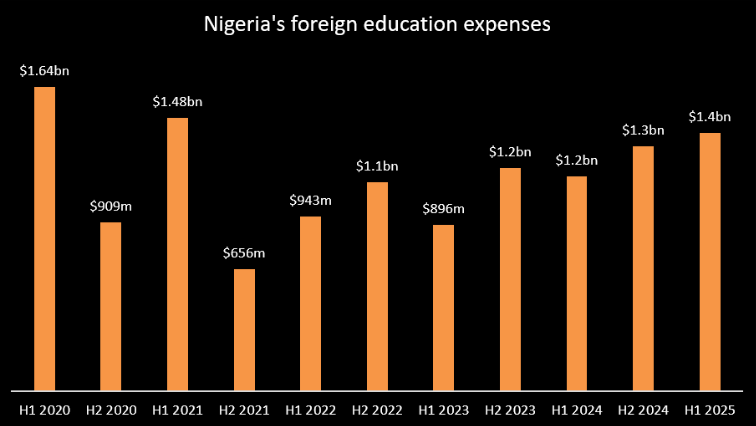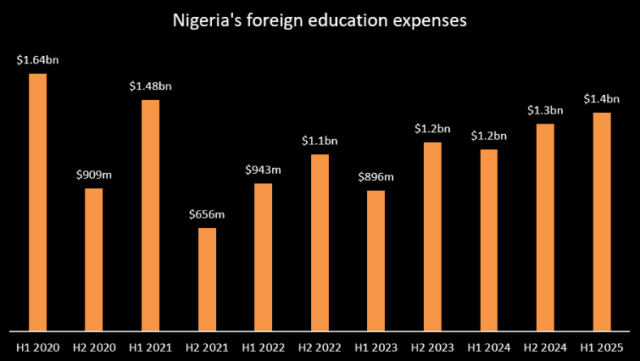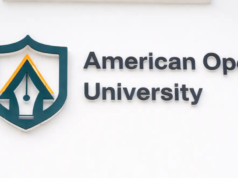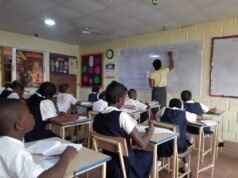In a striking development, new data from the Central Bank of Nigeria (CBN) reveals that Nigerians spent $1.39 billion on foreign education in the first half of 2025 — the highest semi-annual total since 2021. This surge in “education tourism” underlines growing frustration with challenges in Nigeria’s domestic higher-education system.
Table of Contents

Soaring Overseas Education Outflows
According to the CBN’s Balance of Payments report, the $1.39 billion spent on foreign schooling in H1 2025 represents a 20 per cent rise in U.S. dollar terms compared to the same period in 2024. When converted at an average exchange rate of N1,553.6 per dollar, the outflow equals approximately N2.16 trillion — a 38 per cent increase in naira terms.
Over a five-year stretch (2020–mid-2025), Nigeria has now reportedly spent $11.1 billion on foreign education, amounting to roughly N9.9 trillion. That sum is particularly eye-opening: it equates to about 2.6 per cent of the country’s annual nominal GDP over the same period, according to CBN data.
What’s Driving the Exodus?
Experts say the figures reflect more than a thirst for academic prestige — they point to deep, structural problems at home.
- Dropped confidence in local institutions: According to educationists, many Nigerians are looking abroad because local universities are beset by insecurity, infrastructure decay, and industrial disputes.
- Migration motive: For some, foreign education isn’t just about learning — it’s also a ticket to a “greener life.” As one public-sector worker remarked, “many are not studying abroad for education, but for a pathway to better opportunities.”
- Lack of inbound students: Paradoxically, while Nigerians spend big to study abroad, Nigeria is attracting very few foreign students, according to CBN figures.
Analysts highlight the irony: a country losing capital abroad for education while its own universities struggle to retain talent or draw in international students.
Economic Pressure on the Naira and FX Reserves
The high outflow for education is increasingly linked to foreign-exchange strain in Nigeria. As the CBN and other commentators have noted, persistent demand for dollars to pay for tuition, living costs and other schooling-related expenses overseas is contributing to pressure on Nigeria’s foreign reserves.
Over the decade from 2010 to 2020, CBN Governor Olayemi Cardoso famously warned that Nigerians spent nearly $40 billion cumulatively on foreign education and medical tourism. That level of outflow, he argued, was unsustainable — a drain on foreign reserves and a drag on the naira.

Broader Implications and Calls for Reform
This trend doesn’t just raise alarms about forex usage — it has implications for Nigeria’s education policy, economic planning, and social fabric:
- Education System Reform
Critics say the mass exodus to foreign universities signals a lack of trust in Nigerian tertiary institutions. Analysts have called for urgent reforms — better funding, infrastructure upgrades, and improved academic governance — to make local universities more competitive. - Economic and FX Stability
With billions flowing out for education, the CBN faces pressure to manage the balance of payments and protect forex reserves. Reducing such outflows may help ease foreign-exchange volatility. - Migration vs. Education
For many families, foreign schooling is now less about academic prestige and more about long-term migration plans. The government may need to address not just quality-of-learning concerns but also the underlying socioeconomic drivers pushing students abroad. - Internationalisation of Nigerian Universities
While Nigerians are leaving for schools overseas, the country has yet to become a major destination for international students. Strengthening the global appeal of Nigerian universities could unlock new revenue streams and reduce capital flight.

Looking Ahead
The latest CBN data makes one thing clear: the cost of foreign education is now more than just a matter of family aspiration — it is a macroeconomic challenge. If unchecked, the trend could continue to undermine Nigeria’s foreign reserves, weaken the naira, and signal a deep trust deficit in the domestic education system.
Policymakers and education stakeholders will need to act decisively. That means investing in university reform, making Nigeria a more attractive destination for international students, and tackling the structural issues — insecurity, quality, funding — that drive talent and tuition abroad.
Join Our Social Media Channels:
WhatsApp: NaijaEyes
Facebook: NaijaEyes
Twitter: NaijaEyes
Instagram: NaijaEyes
TikTok: NaijaEyes
READ THE LATEST EDUCATION NEWS





